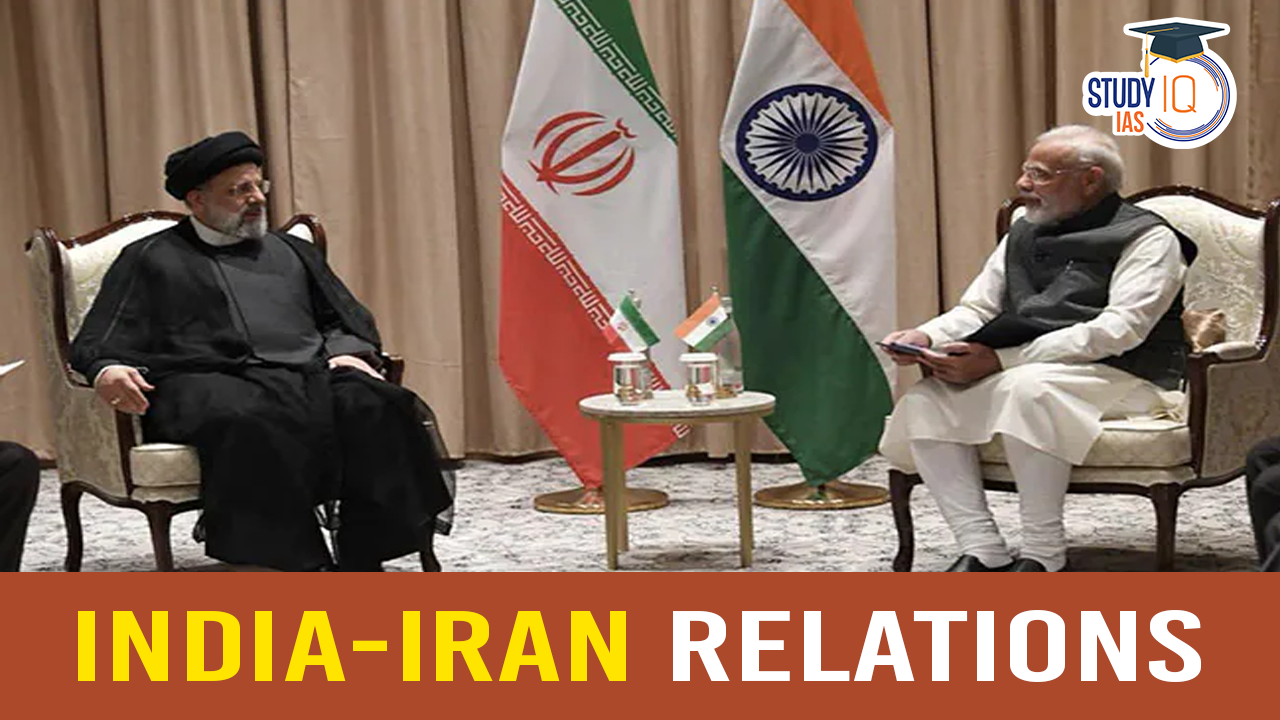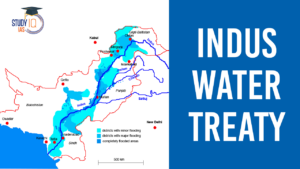Table of Contents
Context
- President Ebrahim Raisi’s death in a helicopter accident has introduced additional uncertainty in a region already fraught with political tensions and conflict.
- Despite this, significant shifts in Iran’s policies are unlikely due to the continued authority of Supreme Leader Ayatollah Ali Khamenei.
India-Iran Relations
- In recent years, relations between India and Iran have been marked by distance and wariness.
- Iran has been displeased with India’s reluctance to jeopardise its strategic and economic interests with the US and the West while pursuing closer ties with Iran.
- Iran has also been concerned about the deepening relationship between India and Israel, and India’s growing ties with Saudi Arabia and the UAE, especially after the Abraham Accords of 2020.
- These accords facilitated the normalisation of relations between Israel and several Arab nations, supported by US diplomatic efforts.
I2U2 Grouping and Regional Security
- India’s participation in the I2U2 grouping, which includes India, Israel, the UAE, and the US, reflects its alignment with US strategy in West Asia and the Gulf.
- This coalition aims to create a regional security architecture targeting Iran, with the US as a guarantor.
- India’s alignment with this strategy is evident from its support of the India-Middle-East Economic Corridor (IMEC), announced at the G20 summit in September 2023.
- IMEC envisions a shipping link between India and West Asia, extending to Haifa port in Israel, with backing from the US, EU, Saudi Arabia, and Israel.
Check here complete details about Iranian President Ebrahim Raisi Death In Helicopter Crash.
Revival of the Chabahar Project
- Despite the focus on IMEC, India has revived the Chabahar project with Iran.
- This project, initially agreed upon in 2016 among India, Iran, and Afghanistan, involves developing and using the Iranian port to connect with Afghanistan and Central Asia, bypassing Pakistan.
- The recent agreement includes a 10-year management deal for an Indian entity to oversee a section of the Chabahar Port, contrasting with previous short-term agreements.
US Reaction and Sanctions
- The US reaction to the renewed Chabahar agreement has been sharp, unlike its accommodating stance in 2016.
- The US has stated that the latest agreement will not be exempt from its sanctions on Iran.
- This change in position is partly due to the US’s withdrawal from Afghanistan and its lack of interest in supporting the Taliban regime, unlike its previous support for the Ghani government.
Regional Dynamics and Connectivity
- The ongoing Israel-Hamas war has brought the Palestinian issue back to the forefront of West Asian politics, affecting India’s diplomatic stance.
- India’s muted response to Israel’s actions in Gaza and its facilitation of Indian labour exports to Israel have drawn criticism.
- To balance its position, India has reiterated its support for a two-state solution and revived the Chabahar agreement.
Challenges Ahead
- The revival of the Chabahar project occurs amidst stalling of the IMEC project due to regional political changes.
- Saudi Arabia’s willingness to fund IMEC and Israel’s participation are uncertain.
- The Chabahar project allows India to remain engaged in regional connectivity plans, despite the shifting dynamics.
Conclusion
- India faces the challenge of navigating its relations with Iran amidst the changing political landscape and US sanctions.
- The unexpected death of Iran’s president adds to the uncertainty, making India’s diplomatic balancing act more complex.


 Indus Water Treaty 1960 Suspended by Ind...
Indus Water Treaty 1960 Suspended by Ind...
 5 Years of SVAMITVA Scheme and Its Benef...
5 Years of SVAMITVA Scheme and Its Benef...
 Global Pandemic Treaty, Objectives and K...
Global Pandemic Treaty, Objectives and K...





















